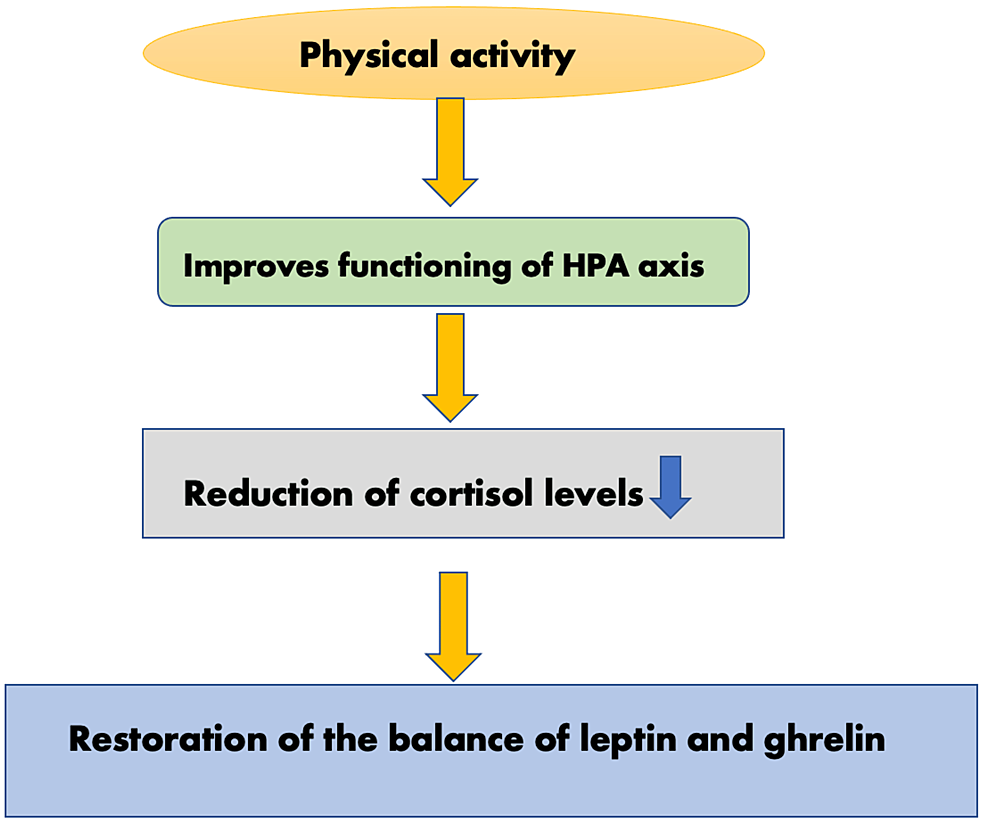Role of Physical Activity on Mental Health… Leave a comment

In addition to the apparent physical health benefits, physical activity affects mental health positively. Physically inactive individuals have been reported to have higher rates of morbidity and healthcare expenditures. Commonly, exercise therapy is recommended to combat these challenges and preserve mental wellness. According to empirical investigations, physical activity is positively associated with certain mental health traits. In nonclinical investigations, the most significant effects of physical exercise have been on self-concept and body image. An attempt to review the current understanding of the physiological and psychological mechanisms by which exercise improves mental health is presented in this review article. Regular physical activity improves the functioning of the hypothalamus-pituitary-adrenal axis. Depression and anxiety appear to be influenced by physical exercise, but to a smaller extent in the population than in clinical patients. Numerous hypotheses attempt to explain the connection between physical fitness and mental wellness. Physical activity was shown to help in sleep and improve various psychiatric disorders. Exercise in general is associated with better mood and improved quality of life. Physical exercise and yoga may help in management of craving for substances especially in people who may not have access to other forms of therapy. Evidence suggested that increased physical activity can help attenuate some psychotic symptoms and treat medical comorbidities that accompany psychotic disorders. The dearth of literature in the Indian context also indicated that more research is needed to evaluate and implement interventions for physical activity tailored to the Indian context are required.
Source


